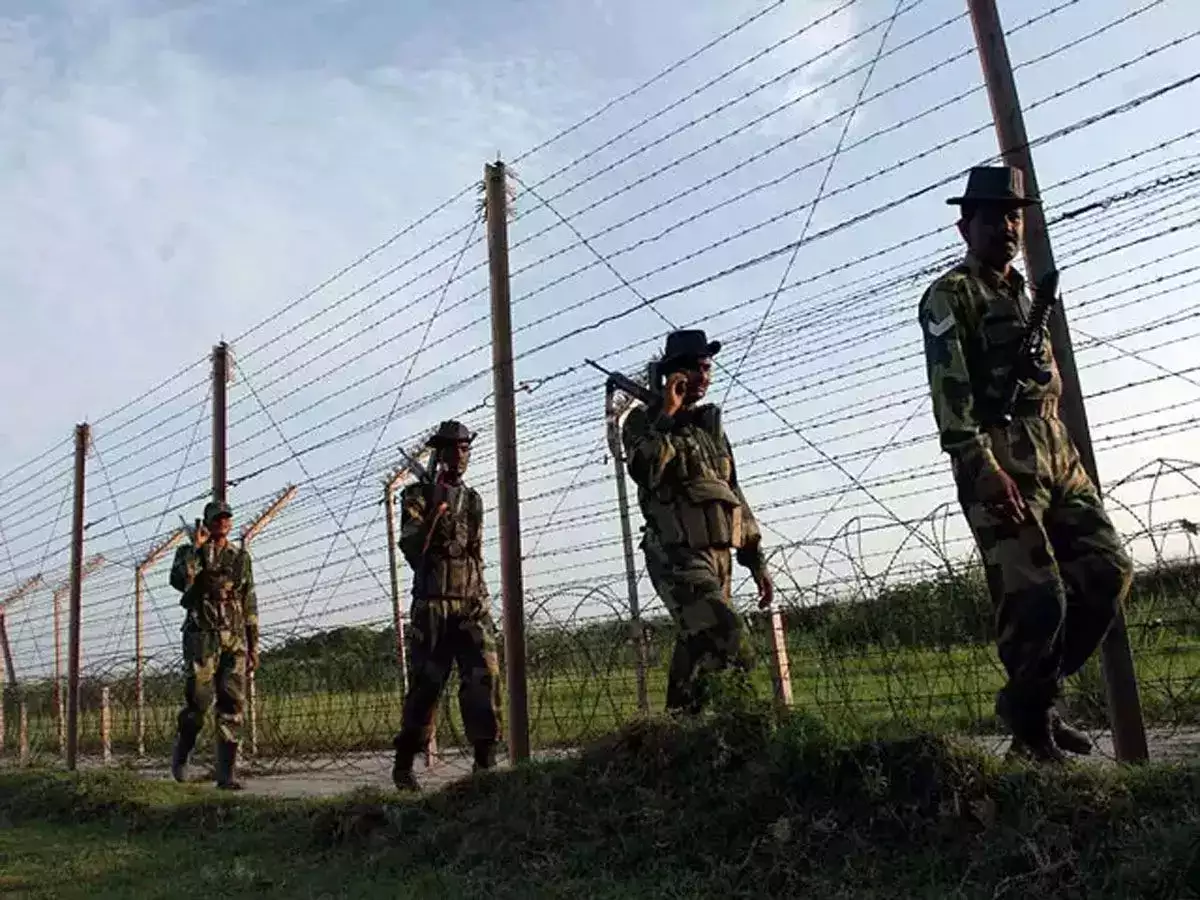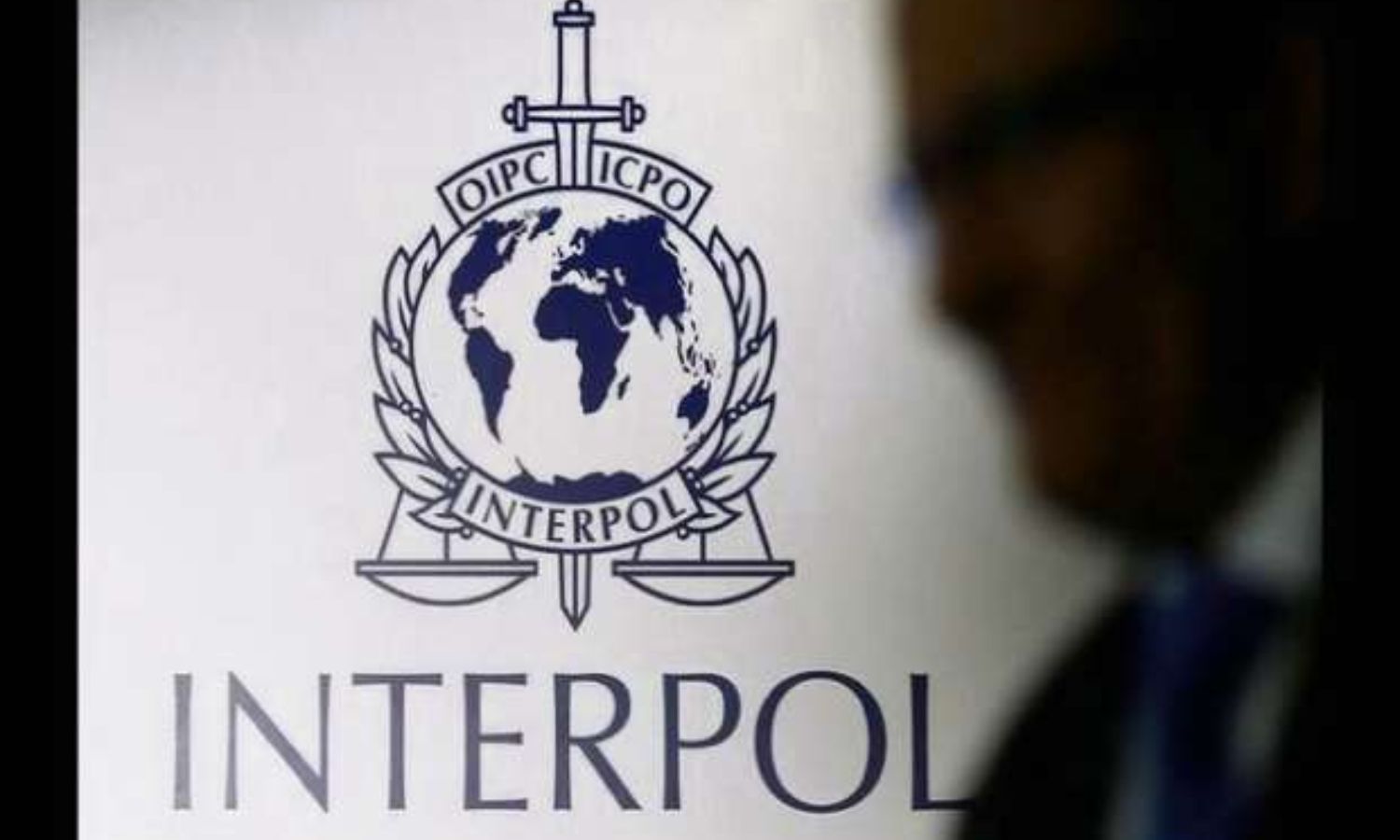While explicitly observing that it is not the law that bail should always be denied in a case where the offence punishable is of death or life imprisonment, the Karnataka High Court has as recently as on May 12, 2022 in a recent, refreshing, robust and rational judgment titled Nethra vs State of Karnataka in Criminal Petition No. 2306 of 2022 and cited in 2022 LiveLaw (Kar) 169 granted bail to a woman accused of murdering her husband. A single Judge Bench of Justice M Nagaprasanna allowed the petition filed by one Nethra and granted her bail relying on Section 437 of the Criminal Procedure Code (CrPC). It must also be mentioned here that the Court made it clear that in terms of Section 437 of the CrPC, bail can be granted in a non-bailable offence on three circumstances as depicted in the proviso, (i) a person below 16 years of age, (ii) a woman and (iii) a person who is sick or infirm.
To start with, this brief, brilliant, bold and balanced judgment authored by a single Judge Bench comprising of Justice M Nagaprasanna of Karnataka High Court sets the ball rolling by first and foremost putting forth in para 1 that, “The petitioner is before this Court seeking enlargement on bail in C.C.No.252 of 2022 arising out of Crime No.530 of 2021 registered for offences punishable under Section 302, 120B and 34 of the IPC, it having been turned down by the Principal District and Sessions Judge, Bangalore Rural in Criminal Miscellaneous No.2009 of 2021, on 17.02.2022.”
To put things in perspective, the Bench then while briefly stating the facts envisages in para 3 that, “The facts in brief are as follows:-
The petitioner is accused No.1. It is the case of the prosecution that on 07-11-2021 at about 1.30 a.m., the complainant, father of the deceased registers a complaint for offences punishable under Section 302 of the IPC, which becomes a FIR in Crime No.530 of 2021. The complaint was that he had two daughters and a son who are all married and his two daughters are no more. His son Palar Swamy was into real estate business. He had two children from the wedlock. About 6 years ago his son Palar Swamy had married one Nethra, the petitioner herein allegedly without the knowledge of his family and had also a child from the said marriage. His son had set up a house in a different locality to reside with the petitioner and was also visiting the house of the complainant. Three years prior to the incident, the son Palar Swamy had purchased two acres of land and developed the same into sites. He had constructed a house in the said developed sites and was residing there with his alleged second wife – the petitioner. The purchase and decision to reside with the second wife became a subject matter of quarrel between the members of the family. It is the case of the complainant that on 06-11-2021, Palar Swamy came to the house of the complainant and had enquired about his health and on the same day, the complainant had tried to call Palar Swamy after 11 p.m. after his dinner but Palar Swamy had not answered the calls. Apprehending some problem for his son, the complainant goes to the house of Palar Swamy at about 12.10 (night) and found the door opened and the petitioner who was holding some weapon in her hand ran away seeing him. Later, the complainant finds his son lying dead on the bed in his room and his head was bleeding. This was narrated in the complaint and a case of murder was registered against the petitioner and one Vijay Kumar, son of petitioner’s sister. On registration of the crime, the petitioner was taken into judicial custody and is in the custody from 08-11-2021. On getting arrested, the petitioner moved an application for bail under Section 439 of the Cr.P.C. during the pendency of investigation itself. Bail application was not considered. The Police after investigation filed their final report/charge sheet on 25-01-2022. The application for bail was taken up later on 17.02.2022 and dismissed notwithstanding the fact that charge sheet had been filed in the matter on the ground that the offence committed was punishable with death or life imprisonment. Rejection of the application is what drives the petitioner to this Court in the subject petition.”
Needless to say, the Bench then observes in para 6 that, “I have given my anxious consideration to the submissions made by the respective learned counsel and peruse the material on record.”
It would be germane to note that the Bench then specifies in para 7 that, “The afore-quoted chain of events is not in dispute. The petitioner is the alleged second wife of the deceased as is also borne out from the records. Quarrel between the wife and the husband is also a matter that is on record. There are no eye witness to the incident is again borne out from the records. Therefore, it is a case where the prosecution has to prove the offence beyond all reasonable doubt, that the petitioner has actually committed murder of the deceased by a weapon. It is also the material on record that quarrel between the husband and the wife took place for the reason that the deceased had pestered the petitioner to have physical relationship with one of his friends in his office and further on 06-11-2021, when the petitioner had asked her husband with whom he was going to travel outside, the answer was that he was travelling with other girls, this again resulted in serious quarrel between the two and the result of quarrel appears to be the reason behind the gruesome act. It is also a matter of record that the petitioner herself went and surrendered before the Police.”
Briefly stated, the Bench then most remarkably after elaborating on Section 437 of CrPC goes on to state aptly in para 8 that, “In terms of Section 437 of the Cr.P.C. bail can be granted in a non-bailable offence on three circumstances as depicted in the proviso, (i) being a person below 16 years of age, (ii) a woman and (iii) is sick or infirm. The petitioner is a woman. She is entitled for consideration under Section 437 of the Cr.P.C. Before applying the aforesaid provision to the facts of the case and considering the case of the petitioner for enlargement on bail, it is germane to notice application of the said provision by coordinate Benches of this Court all in the case of offences punishable under Section 302 of the IPC and they being women. A coordinate Bench of this Court in KAVITHA v. STATE OF KARNATAKA – Crl.P.No.2509 of 2019 decided on 05-08-2019 has held as follows:
“2. The complainant by name Smt. Indirani lodged a complaint stating that, she had two sisters by name Parvathamma and Baby and three brothers by name Vijay Kumar, Subramani and Manjunath. The said Subramani was residing along with his brother Vijaya Kumar and his wife Smt. Kavitha along with another sister i.e., Baby and her two sons. The other brother Manjunath was residing along with his wife and children separately. In this background, it is alleged that, on 2-01-2019 at 2.00 p.m. the husband of the petitioner/accused by name Vijayakumar telephone to the husband of the complainant stating that the deceased Subramani is dead. Thereafter, all these persons came to the house of Vijayakumar and saw the dead body of the deceased Subramani and suspected his death. Hence, after the post-mortem examination they came to know that Subramani died due to asphyxia as a result of strangulation. On the basis of such information, the complainant lodged a complaint against the petitioner, which initially came to be registered in UDR No.2/2019 and thereafter in Crime No.5/2019 for the offences punishable under Section 302 of IPC and the police after thorough investigation, laid charge sheet against the petitioner/accused.
3. Learned counsel for the petitioner submitted that, there are many people residing in the said house. The entire case revolves around the voluntary statement of the petitioner/accused – Kavitha that, she informed her husband and others that she actually tried to wake him up but, he did not wake up and she noticed that he was dead. Therefore, the prosecution has to prove beyond reasonable doubt that, actually the petitioner/accused has committed the murder of the deceased by strangulation. It is also not available in the charge sheet that actually what transpired on the particular date of incident and how many persons were present in the house. All those things to be thrashed out during the course of full dressed trial.
4. In the above facts and circumstances of the case, proviso to Section 432 Cr.P.C. would come to the help of the petitioner herein. Even at this stage, if the court comes to the conclusion that, a strong prima facie case is made out against a woman, still the court can exercise its discretion and it may enlarge a lady on bail with conditions. Though the petition is filed under Section 439 of Cr.P.C., the proviso to Section 437 can be equally made use of. The said proviso says that, even if there appears reasonable grounds for believing that the accused is guilty of the offences punishable with death or imprisonment for life, provided the Court may direct that the person referred to in Clause (i) or Clause (ii), be released on bail, if such person is under the age of sixteen years or is a woman or is sick or infirm. Therefore, in the above circumstances, in my opinion, as the petitioner/accused has been in jail since 5-01-2019 and the charge sheet has already been filed, she is entitled to be enlarged on bail during the trial, with certain condition………” (Emphasis supplied).
Long before the said judgment, the very learned Judge in RATNAWWA AND ANOTHER v. STATE OF KARNATAKA – Crl.P.No.100503 of 2014 decided on 13-03-2014, has held as follows:
“2.The petitioners, who are arrayed as accused Nos. 2 and 3 in Crime No.117 of 2013 of Kundgol Police have approached the Sessions Court, Hubli, for grant of bail, after filing of the charge sheet, which came to be rejected. Hence, petitioners are before this Court for grant of bail.
3. The brief factual aspects that emanate from records are that, a person by name Parameshappa Basappa Naikar has lodged a complaint stating that, on 6.10.2013 at about 5.30 p.m. he has received a telephonic message from his son-in-law by name Manjappa Ningappa Balanaikar of Betadur Village that the accused persons – petitioners and one Dyamanna have assaulted the deceased Basappa Shivappa Balanaikar with a spade. Immediately complainant went to the spot and saw the dead body and from one Ningappa Shivappa Balanaikar he came to know that Dyamanna has assaulted on the head of deceased with a spade. It is alleged that petitioners Ratnawwa and Neelawwa have instigated said Dyamanna to assault the deceased, who has succumbed to injuries on the spot. The Police have investigated the matter and even during the course of investigation the eye-witnesses have reiterated same set of facts. CW-8 Ningappa Shivappa Balanaikar, an eye-witness to the incident has stated that the petitioners were present at the time of incident and they have instigated or abetted Dyamanna to commit suit an offence. Looking to the above factual aspects, no overt act has been alleged against these petitioners. The learned Sessions Judge after considering the materials has observed that the petitioners are root cause for the incident and rejected the bail petition filed by petitioners. Police have filed charge sheet against the petitioners. Petitioners were arrested on 7-10-2013 and since then they are in judicial custody.
4. The proviso in Section 437 of Code of Criminal Procedure, 1973 (hereinafter referred to as ‘Cr.P.C.’ for brevity) empowers the Court that even if the offences which are punishable with death or imprisonment for life or imprisonment for seven years or more, the Court may direct that such a person referred to in clause – (i) or (ii) of Section 437 of Cr.P.C. be released on bail, if it is satisfied that if such person is under the age of 16 years or is a woman or is sick or infirm. Therefore, it is a special proviso appended to Section 437 of Cr.P.C. particularly, considering the woman folk, sick and infirm persons and the persons, who are less than 16 years. When specific over acts are not there, the abetment has to be proved before the Court beyond all reasonable doubt and further that only on the basis of such abetment the other accused has committed such a ghastly incident. Hence, it is not necessary to keep the petitioners in jail. …..” (Emphasis supplied).
In a later judgment, another coordinate Bench of this Court in THIPPAMMA @ THIPPAKKA v. STATE OF KARNATAKA – Crl.P.No.8575 of 2017 decided on 01-03-2018, has held has follows:
“2. Respondent-Police has registered a complaint against the petitioner and another accused for the offences under Section 302 and 201 r/w 34 of IPC in Crime No.225 of 2016. The complaint was made by the son of the deceased. It appears that there was illicit relationship between accused Nos. 1 and 2 and the deceased came to know of this. It is alleged that in the background of illicit relationship, on 10-11-2016 in between 11.00 p.m. and 1.30 p.m. accused Nos. 1 and 2 caused death of Thippeswamy.
3. The learned counsel for the petitioner argues that there are no eye-witnesses to the incident. The prosecution has to prove the circumstances. Investigation has been completed and charge sheet is filed and other accused is released on bail. This petitioner is a woman and therefore, requires to be released on bail.
4. The HCGP opposes the grant of bail stating that there are prima facie materials although the entire case rests on circumstantial evidence.
5. Having perused the complaint and other materials, it can be said that since other accused has been released on bail, this petitioner being woman can also be released on bail. That apart, this case rests on circumstantial evidence. Burden is on the prosecution to prove every link in the chain of circumstances. Since charge sheet has been filed and that the petitioner has been in custody for quite a long time, she can be admitted to bail…….” (Emphasis supplied).
All the afore-quoted judgments rendered by the coordinate Benches of this Court, were considering the purport of Section 437 of the Cr.P.C. and were cases where accused No.1 therein were women and all of them alleged of offence punishable under Section 302 of the IPC for commission of murder. It is also a matter of record that the alleged accomplice in the act of murder one Vijay Kumar is granted bail on 13-04-2022 by the learned Sessions Judge. For the aforesaid facts, the statute i.e., Section 437 of the Cr.P.C. and its application in the judgments of three coordinate Benches all would enure to the benefit of the petitioner to be enlarged on bail notwithstanding the fact that the offence alleged is under Section 302 of the IPC. It is not the law that bail should always be denied in a case where the offence punishable is of death or life imprisonment. In exceptional cases, if the statute permits and the facts not being so gory and grave criminal antecedents shrouding the culprit, the consideration in such cases would be different.”
Finally and far most significantly, the Bench then holds in para 9 that, “In my considered view, the facts in the case at hand are not those that would not entitle consideration of the case under Section 437 of the Cr.P.C. particularly, looking at the conduct of the petitioner for having surrendered before the Police on commission of the alleged murder. The petitioner has no criminal antecedents except the present sword hanging on the head, and on release would not be a threat to society, coupled with the fact that the police have completed the investigation and have filed the charge sheet at the case on hand. Wherefore, the following:
ORDER
The criminal petition is allowed. The petitioner/accused No.1 Nethra shall be released on bail in connection with Crime No.530 of 2021 of Madanayakanahalli Police Station and pending before the Additional Civil Judge (Junior Division) and JMFC Court, Nelamangala, Bangalore Rural District subject to the following conditions:
(i) The petitioner shall execute a personal bond for a sum of Rs.2,00,000/- (Rupees two lakhs only) with one surety for the like sum to the satisfaction of the jurisdictional Court.”
(ii) The petitioner shall not indulge in tampering the prosecution witnesses.
(iii) The petitioner shall appear before the jurisdictional Court on all future hearing dates unless exempted by the Court for any genuine cause.
(iv) The petitioner shall not leave the jurisdiction of the trial Court without prior permission of the Court till the case registered against her is disposed of.
The observations made above are only for the purpose of consideration of the application for bail and the same shall not in any manner influence the trial. The trial Court shall consider the case on its merits and without being influenced by this order.”
In sum, it must be underscored that Justice M Nagaprasanna of Karnataka High Court has in this learned, laudable and landmark judgment made it crystal clear that women can definitely be granted bail even in non-bailable offences and even if it is punishable with life sentence/death. But the Court has simultaneously also made it indubitably clear that before granting bail, the Court must definitely take into account the conduct of the petitioner, her past track record, whether she poses a real threat to society if released on bail and all other necessary factors as stated herein aforesaid! It definitely merits no reiteration that all the Courts in similar such cases must always unfailingly and unflinchingly abide by what the Karnataka High Court has laid down so very commendably in this leading case!


 Opinion3 years ago
Opinion3 years ago
 Entertainment8 years ago
Entertainment8 years ago
 Entertainment8 years ago
Entertainment8 years ago
 Fashion8 years ago
Fashion8 years ago
 Opinion4 years ago
Opinion4 years ago
 Entertainment8 years ago
Entertainment8 years ago
 Politics8 years ago
Politics8 years ago
 Entertainment8 years ago
Entertainment8 years ago









